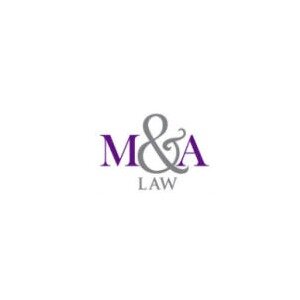Best Civil & Human Rights Lawyers in Sri Lanka
Share your needs with us, get contacted by law firms.
Free. Takes 2 min.
Or refine your search by selecting a city:
List of the best lawyers in Sri Lanka
About Civil & Human Rights Law in Sri Lanka
In Sri Lanka, Civil & Human Rights are enshrined in the Constitution and various legislative frameworks designed to protect the dignity, freedom, and equality of individuals. The country has a rich tapestry of cultural, ethnic, and religious diversity, which makes the protection of human rights particularly significant. The legal structure is largely influenced by British common law, Roman-Dutch law, and local customary laws. The Sri Lankan constitution guarantees fundamental rights such as the right to equality, freedom of speech, and the right to protection from torture and discrimination.
Why You May Need a Lawyer
There are numerous situations where legal assistance in Civil & Human Rights might be necessary:
- Experiencing discrimination based on race, religion, gender, or other protected categories.
- Facing unlawful arrest or detention.
- Dealing with harassment or threats based on the exercise of free speech or political opinion.
- Seeking asylum or refuge due to persecution.
- Encountering violations of rights at the workplace.
- Engaging in litigation related to environmental rights or land disputes.
Local Laws Overview
Sri Lanka's commitment to civil and human rights is reflected in several key legal documents and international agreements:
- The Constitution of Sri Lanka: It provides for fundamental rights, which are further safeguarded by the Supreme Court.
- International Covenant on Civil and Political Rights (ICCPR) Act: Enacted to bring local laws in line with international standards.
- Prevention of Domestic Violence Act: Protects individuals from domestic violence and abuse.
- Labor laws: Ensure the rights of workers including fair wages, safe working conditions, and freedom from discrimination.
Frequently Asked Questions
What are the fundamental rights guaranteed by the Sri Lankan Constitution?
The Constitution guarantees rights such as equality before the law, freedom from discrimination, freedom of speech, protection from arbitrary arrest, and the right to life and personal liberty.
What should I do if I am unlawfully arrested?
Seek immediate legal representation. You have the right to be informed of the reasons for arrest and to consult a lawyer.
How can I report human rights abuses?
You can report abuses to the Human Rights Commission of Sri Lanka or seek assistance from civil rights organizations and legal aid groups.
Can I take legal action if my right to freedom of expression is violated?
Yes, you can file a fundamental rights petition at the Supreme Court within one month of the violation.
How does Sri Lanka protect women’s rights?
The government has enacted laws such as the Prevention of Domestic Violence Act and laws against sexual harassment to protect and promote women's rights.
What rights do workers have in Sri Lanka?
Workers have rights to fair wages, safe and equal working conditions, and to form and join trade unions.
Is discrimination based on sexual orientation protected under Sri Lankan law?
While there is no explicit legal protection for sexual orientation, discrimination based on sexual orientation is generally challenged through advocacy and legislative reform efforts.
What recourse is available for victims of torture?
Victims can file a complaint with the Human Rights Commission or pursue legal action under the Convention Against Torture Act.
How does Sri Lanka address freedom of religion?
The Constitution guarantees freedom of religion and the equal treatment of all religions by the state, although some practical challenges remain.
What is the role of civil society in promoting human rights in Sri Lanka?
Civil society organizations play a vital role in advocacy, education, and providing legal aid to those whose rights have been violated.
Additional Resources
The following resources can be helpful for those seeking legal advice regarding Civil & Human Rights in Sri Lanka:
- Human Rights Commission of Sri Lanka: Conducts investigations and provides assistance for human rights abuses.
- Legal Aid Commission of Sri Lanka: Offers free legal services to those in need.
- National Human Rights Action Plan (NHRAP): A framework to enhance the protection and promotion of human rights.
- Non-Governmental Organizations (NGOs): Many work specifically on human rights issues and provide support and advocacy.
Next Steps
If you require legal assistance in Civil & Human Rights, consider taking the following steps:
- Identify the specific nature of your issue and gather any relevant documentation or evidence.
- Consult with a qualified lawyer who specializes in Civil & Human Rights. They can provide you with personalized legal advice based on your situation.
- Reach out to legal aid organizations if you require financial assistance to access legal services.
- Stay informed about your rights and any relevant legal processes.
- Consider reaching out to supportive organizations or communities that can provide further assistance and advocacy.
Lawzana helps you find the best lawyers and law firms in Sri Lanka through a curated and pre-screened list of qualified legal professionals. Our platform offers rankings and detailed profiles of attorneys and law firms, allowing you to compare based on practice areas, including Civil & Human Rights, experience, and client feedback.
Each profile includes a description of the firm's areas of practice, client reviews, team members and partners, year of establishment, spoken languages, office locations, contact information, social media presence, and any published articles or resources. Most firms on our platform speak English and are experienced in both local and international legal matters.
Get a quote from top-rated law firms in Sri Lanka — quickly, securely, and without unnecessary hassle.
Disclaimer:
The information provided on this page is for general informational purposes only and does not constitute legal advice. While we strive to ensure the accuracy and relevance of the content, legal information may change over time, and interpretations of the law can vary. You should always consult with a qualified legal professional for advice specific to your situation.
We disclaim all liability for actions taken or not taken based on the content of this page. If you believe any information is incorrect or outdated, please contact us, and we will review and update it where appropriate.
Browse civil & human rights law firms by service in Sri Lanka
Sri Lanka Attorneys in related practice areas.
Browse civil & human rights law firms by city in Sri Lanka
Refine your search by selecting a city.

















